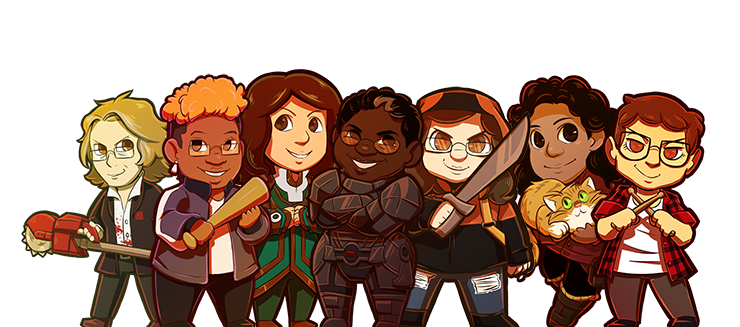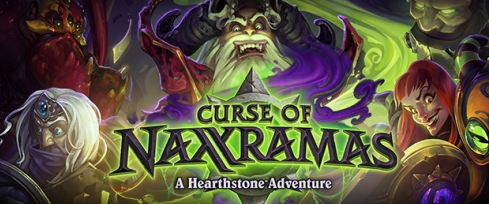I sit here today wrestling with this question for a very good reason. A summer camp I’ve been involved in is on the precipice of being shut down. The camp is designed to get middle and high school aged girls involved in IT, computer science, and video games. Last year it was wildly successful: I have never seen a group of smarter, more engaged girls. I taught the video game design unit, and they could either use Twine or Kodu to make a game. We only had a couple hours, so the games weren’t extensive or complete, but they were innovative. One student even asked to access her google drive to get a novel she had been writing. Many were so excited about making their games we had to force them out of the room after the session was over. It was magical. It was incredible. It gave me so much hope for the future. But most of all, it was—for many of them—the first time they were able to be in a space where is was cool to nerd out.
Middle school and high school is a tough time for everyone. Teacher bias, media, and social pressure, among other things, drive the love of math and science out of elementary school girls by the time they reach high school. By the time they reach college, there are very few women who feel they are “good enough” in STEM to pursue a degree in it. There is so much implicit and explicit bias in our cultural that it’s a wonder any women escape it at all. Women compromise 48% of the US workforce, but only 24% of the STEM workforce. It falls to around 18% in engineering. This is an unequal landscape; study after study has shown how crucial mentorship is and seeing people you identify with in leadership positions. If you’re a woman, and you see no female engineers, there is an overwhelmingly likely chance you will not see yourself as an engineer. This isn’t even a feminist position: it’s like this for everyone. You see few male secretaries. I have never met a young boy who wants to be a receptionist—but many young girls who do, or at least see if as a viable option. Why? Because they see other women in that role. Although men in female-dominated industries still make more, but that’s another article.
My point with this is that we all know intuitively that the perception that certain industries are for one gender or another influences the opposite gender to stay away from that career. Thus, in order to overcome that inequality, certain things need to be done to encourage that gender to join. Ok, so now I’ve tediously explained the most basic tenets of affirmative action, which of course is a controversial topic. But hopefully it makes sense.
Back to the girls IT camp. The university hosting the camp stated that we would not be allowed to host a girls’ camp because it excludes boys. This violates the university’s mission of providing equal access to everyone for all educational opportunities. So, on the surface, they’re right of course. It’s a girls camp; boys were never specifically excluded, but they weren’t invited or targeted either. Is this discrimination? Is this fair? Does this create equality?
It discriminates, yes. It is not fair to the individual boy who wants to join. There is not equal access to this event. In my view, though, it does address larger discrimination, larger unfairness, and larger inequalities. This one event is a woman’s only space, yes, but within a field that employs only 24% women. If we are serious about correcting imbalances in the workforce for technical, STEM positions, then we have no choice but to make camps and other services that girls will take advantage of. You could argue that every computer science class violates Title IX because girls do not have the same access to it as boys do. Society tells them they don’t belong there. They’re told they don’t need to be smart if they’re pretty. They are devalued at every turn. So of course many turn away. Is this really a fair situation in the classroom, then?
In the end, we have decided to move forward with the camp, opening it up to everyone and hoping it stays targeted at girls, since there are many “open” camps in the area that are attended only by boys. In fact, this may be a positive thing. Those who identify as gender neutral or something that doesn’t fit in the male/female dichotomy may now feel more welcome than under the previous rules. We may even begin to cultivate allies if boys decide to join, since the curriculum is decidedly feminist. So who knows, but I do know this: canceling a girls’ camp, in a field that desperately needs women, is not fair or equal.





One thought on “What is Equality?”
Hi Alexlayne! Thanks for the article, a couple of thoughts:
Myself and other co-workers recently participated in a “girls code camp”, I have to admit that the exclusivity part really made me uneasy about how we should teach skills or education (at least in the short-term).
It was a success in the sense that there were around 40 attendees (mostly young students and professionals, but we had a 50’s something chemist that really put an effort in building her own webpage), and I’m really sure those numbers would have not shown had this been a “more open” event.
I guess a lot has to do on how you target these kind of events, I’m still uneasy about the idea of giving these kind of skills or resources to a very select few, however it is true that many of these kind of events don’t really make an effort into being very inclusive, I myself have said in the past “It is not for me” given how the event is marketed.
Also, this sounds great:
“But most of all, it was … they were able to be in a space where is was cool to nerd out”